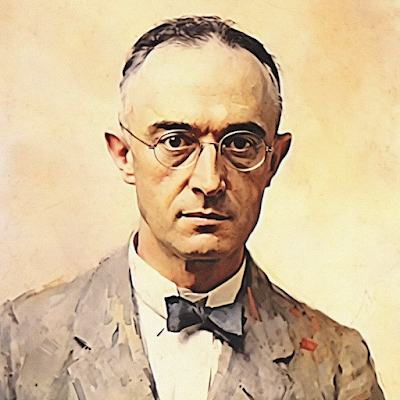William Carlos Williams
1883 - 1963
American poet
⭐⭐⭐
Well, I am going to be brutally honest: I had never heard of William Carlos Williams or any of his poetry before The Well-Educated Mind Reading Challenge, and I do not think I was missing anything. At least from the suggested list. If that was his best...pfff.
I know -- I talk like I know poetry. I don't.
But I can read something and know if it was worth it or if it was impressive or beautiful or if I can at least relate to it or take away something from it. Williams' poetry was mostly experimental; he is called an Imaginist. He did not follow rules of writing poetry (or made them up as he wrote). He did not write sentences with punctuation. He just improvised in style. In the poetry world, I suppose it was successful because here he is on a list for me to read. But I could have just skipped it and I would not have missed anything. Except one or two, which I will get to in a moment, which were above acceptable.
Here were the suggested titles I had read, and following is a brief impression of each..
Asphodel That Greeny Flower (Love letter asking wife for forgiveness. Somewhat interesting.)
The Descent of Winter (journal writings…really long and not interesting)
Landscape with the Fall of Icarus (about Bruegel’s painting! Clever.)
The Last Words of My English Grandmother (That was odd.)
Proletarian Portrait (I think he lost me.)
The Red Wheelbarrow (really experimental)
Self-Portrait (very weird)
Sonnet in Search of an Author (WHAT DID I JUST READ??)
Spring and All (OK, better…)
This is Just to Say (I forgot.)
Tract (I have no idea.)
To Elsie (depressing)
Overall, I gave Williams three stars because some of his poetry was agreeable, though mostly I found it tolerable, which means: I tolerated it (but I don't know how). His topics were widely varied, which was fine, but his expression of them were very peculiar; and again, I do not understand why poetry has to be strangely obscure.
"Landscape with the Fall of Icarus" was my only favorite because it caused me to revisit the painting by Bruegel. Williams pointed out that no one had noticed what had happened to Icarus, even the fisherman at the water's edge, a few feet from where Icarus entered the water. It was all kind of humorous. Possibly, Bruegel meant it to be, and Williams was moved to write about it.
And "Asphodel," the love letter to his wife (or ex-wife), was worthwhile, too. He wrote it near the end of his life or when he was very ill, and he was convicted to ask her forgiveness for his unfaithfulness. What a way to do it, if you can write poetry.
* * *


No comments:
Post a Comment
Share your thoughts...